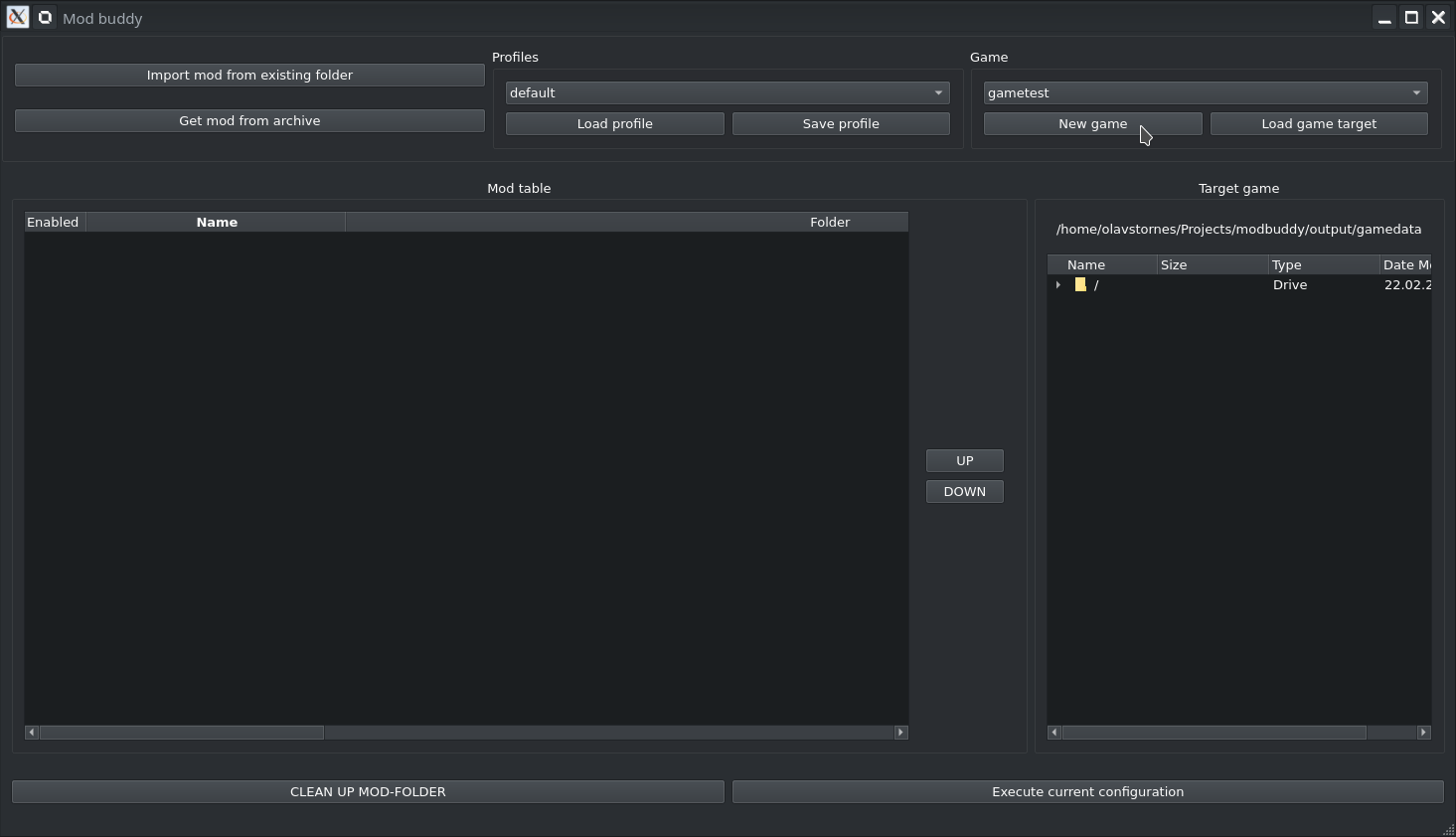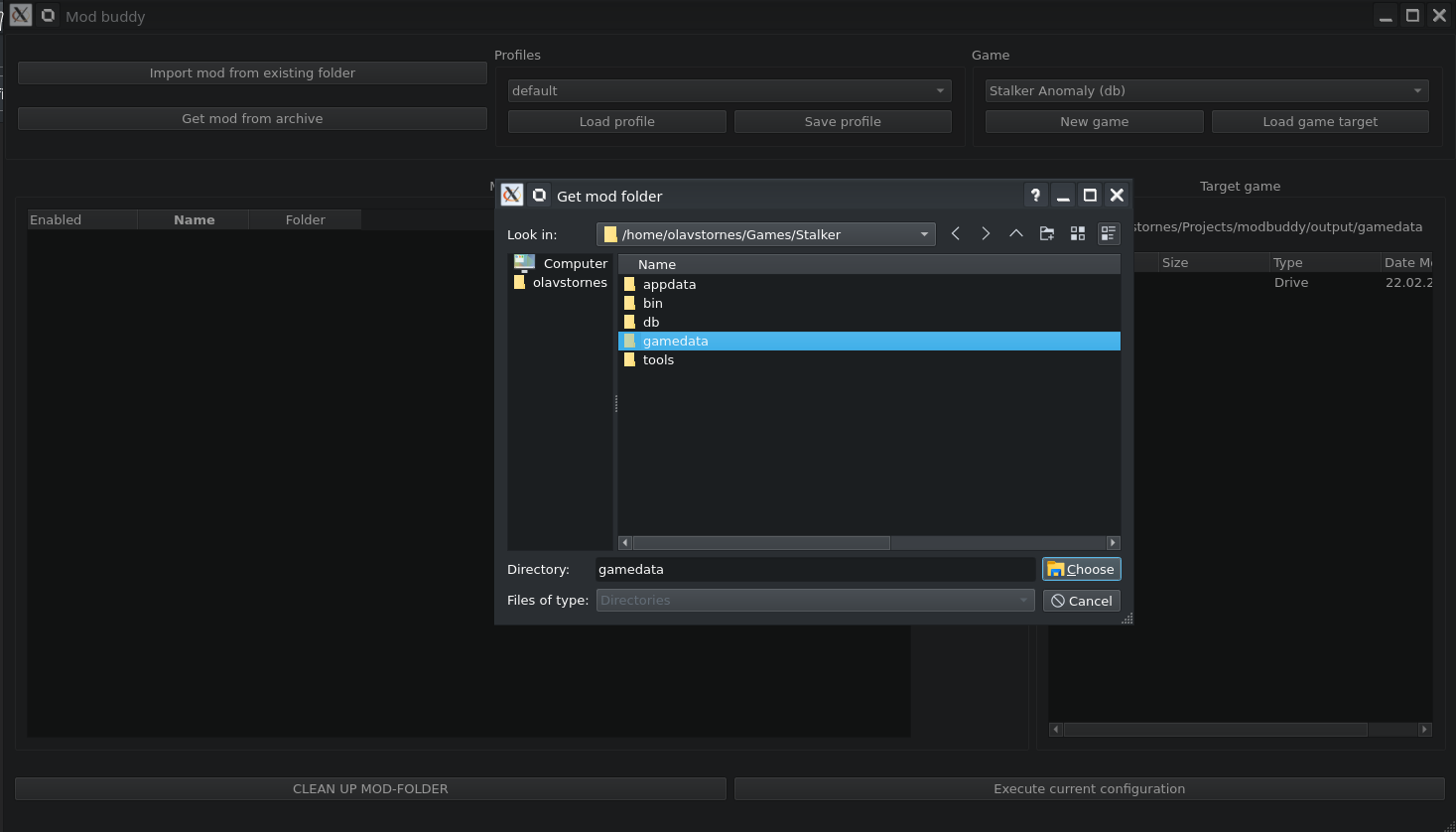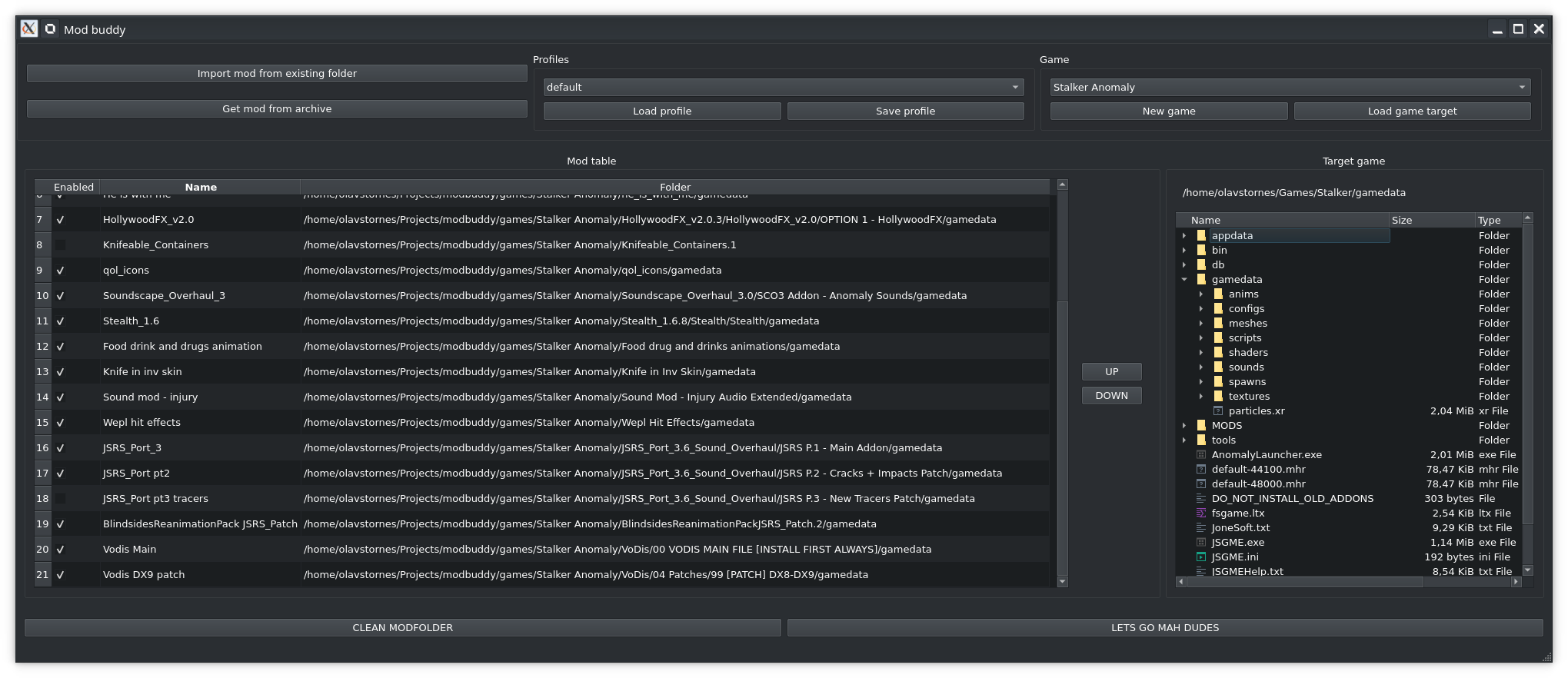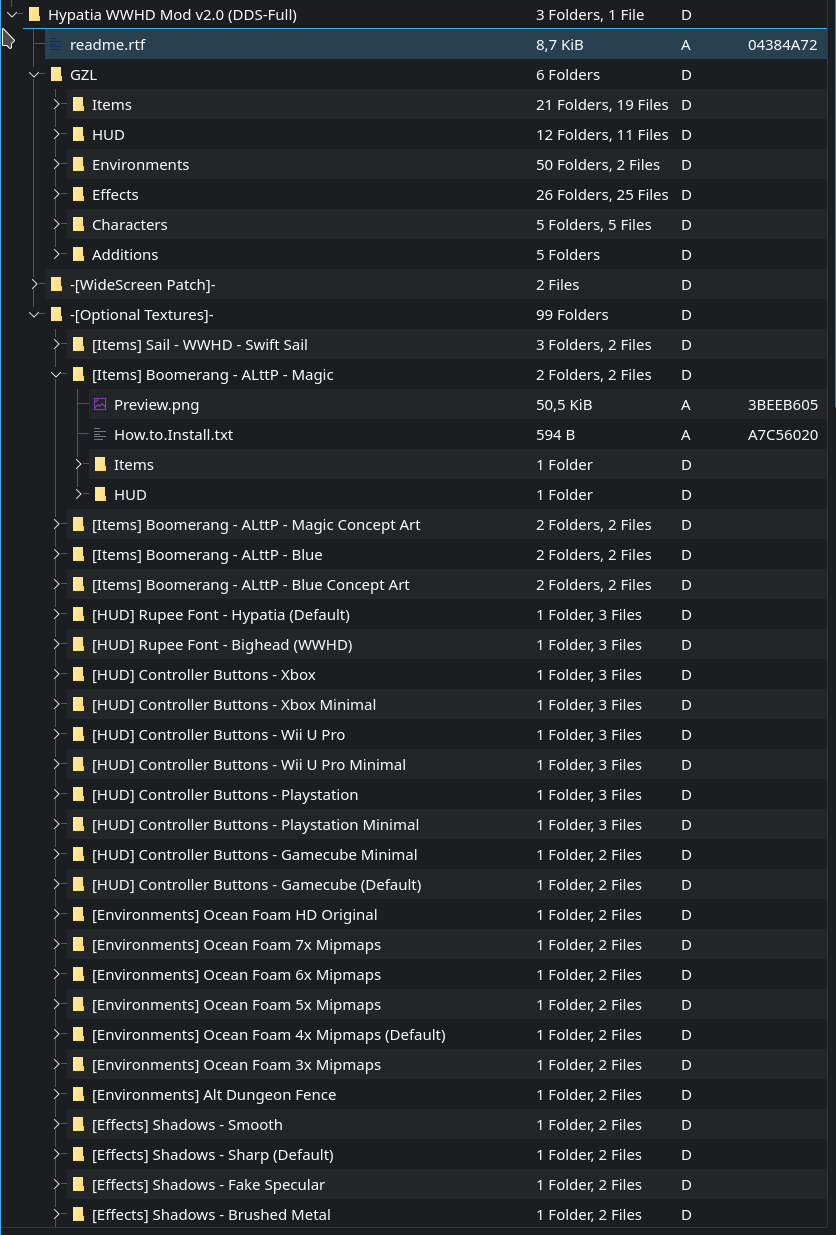Mod buddy
After attempting to mod Stalker Anomaly, i had issues finding good tools for the modding scene in Linux. Instead of merging a large amount of files like a caveman, I attempted to create a good enough tool for my use cases.
Features
- Apply any mod, regardless of how the folder structure is.
- Applied mods are hard linked, saving space
- Support for an arbitrary amount of games
- Mod presets
- Prioritize mod order
Future dreams
- Conflict detection
- Revert a modified folder to its unmodded state
- More user friendlyness
- Use relative paths on mod settings
Cases
To further understand why this exists in the first place, I have some examples where the use case may be clear:
- Texture packs with optional patches
This is one use case i find practical. Rather than merging all the patches i want, i can manage them through Mod buddy by importing each patch as a separate mod.
- STALKER Anomaly
Stalker anomaly has a big variety of addons/mods, and as a lot of the mods overlap with varying grade of compabillity. This workflow is easily manageable as well. Since not all addons have the same file structure ('ROOT/gamedata'), Mod buddy is developed to handle such cases as well.
Explanation
Modbuddy is leveraging the usage of hard links to both avoid duplicated data and avoid any suprises in regards to the filesystem. This is the main functionality residing in modpack.py
Usage
- Requirements can be retrieved with
pip install -r requirements.txt - Run via
main.py
Set up a game folder
- First you need to set up a destination folder. This is done with the control panel on the upper right ("New Game"). Here you will choose which folder the mods will reside.


Presets
- When setting up a new game, a default profile is created as well (controls at the top middle). Should you need multiple configurations, this is where you can control this.
Add mods
Lastly, you add mods via the "Add mods"-group to the top left.
You can add mods from two different ways:
- Add mod from archive: Extract target archive to a folder inside Mod buddy, where you then can choose the folder inside
- Add mod from folder: Choose a folder which contains a mod
- This is intended for mods that have multiple patches (such as the texture pack mentioned above) or when the user didn't use the above mentioned button.
Disclaimer
Before you want to try this out: I'm not a UX-designer, a QT-developer nor a cat. This is a personal project which i have found a practical use for.


